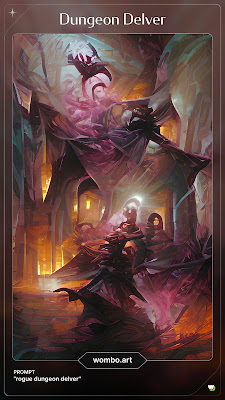In reviewing my entry in his Wavestone Keep contest, Bryce Lynch raised an interesting question.
“I note an interesting thing while going over this: the one time magic item. What do you do with these in your game? A longsword with a one time use smoke bomb in the hilt, or a bottle of whiskey thatinduces vomiting … the ensuing vomit instantly hardening like a web spell. These sem, to me, like things that are to use in game in practice. How do you figure out what to do without voiding the magic items usefulness or communicate the effect in such a way it can be leveraged? Otherwise you’re just moria-gulping potions at random when you’re out food and hoping something good happens.”
This is worth considering on a few levels.
First, it is an example of how writing an adventure (or any gaming “tool”) reveals all kinds of assumptions we can easily gloss over when preparing material only for our own use. I have always used a lot of single-use items, and I usually describe them in a way that gives the PCs a good idea of what to expect before they’re used.
For the sword with the smoke bomb in the hilt, I would describe a glass sphere swirling with smoke. If the character had a relevant background (for example, they were a thief) I might say they recognize this sort of device from past experience. Likewise, with the whiskey, I might also link to a character’s past or background, or use the “sip” rule wherein imbibable magic can be intuited by taste, without consuming it. Admittedly, the weird effect of the whiskey is a bit of a stretch (a retch stretch?) to plausibly anticipate. I may have gone too far in a few places.
But that's all my own internalized adjudication techniques. None of it is on the page, available for the purchaser to use. Which means its a blind spot that needs to be accounted for when creating something for publication.







